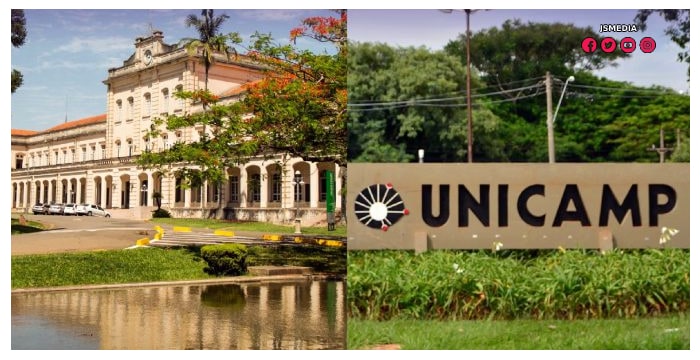JSMedia – Unicamp University, also known as the State University of Campinas, is one of the top universities in Brazil and Latin America. It has consistently ranked among the best in the world, making it a top choice for international students. Here are a few things to keep in mind before you apply. The city of So Paulo has a large, diverse student population and the university is one of the largest in Brazil.
The university offers a wide variety of undergraduate programs and is one of the largest federal educational institutions in Brazil. The main campus is located in Belo Horizonte, but courses are also available in Montes Claros, Limeira, Tiradentes, and other areas of the state. You can find a wide variety of study programs at Unicamp. If you’re looking for a high-quality education, consider attending this school.
Founded in 1962, Unicamp is Brazil’s largest public university. Since then, it has graduated more than ten Brazilian presidents and has become the second most prestigious school in the country. The school is spread across 350 acres and includes 10 institutes and 14 schools. This makes Unicamp a top choice for international students. It is also ranked among the top three universities in Latin America.
Unicamp Offers Online Scholarships For International Students

The campus is home to the Sao Paulo State University. However, a visit to Unicamp is highly recommended if you want to experience a unique cultural and historical experience. The state capital of Campinas has an interesting historical heritage and is a hub of economic prosperity and good shopping. And, as a bonus, Unicamp’s campus is located in the city center, which is the most popular among students.
Students looking to attend Unicamp should understand that this is an incredibly large city. In fact, the metro area of Campinas has a population of nearly 3 million. Although the city is smaller than Sao Paulo, it is still one of the largest in the South. As a result, it is easy to travel to the city and its surroundings. The university is in the heart of the state, making it ideal for international students.
The city of Campinas is an important city in the region of Sao Paulo in Brazil. It is the main campus of the State University of Campinas, also known as UniCamp. Its affiliate campuses are in Limeira and Paulinia. Known for its temperate climate at the Tropic of Capricorn, this city offers a diverse range of cultural and entertainment options.
The city of Campinas is a major educational, industrial, and financial hub. It has two soccer teams and a symphony orchestra. It is 60 miles northwest of Sao Paulo, the capital of Brazil. The city’s beaches are about two hours away and are accessible through numerous country resorts. But even if you’re not a native, you can still enjoy the country’s culture.
The administration of the University of Campinas is centralized around the rector. The rector serves as the university’s president. The rector is elected by the state governor. The list of candidates is based on the number of votes by the university community. The first rector, Zeferino Vaz, drove the installation of the university. He held the position for 12 years and then was succeeded by Carlos Heitor Brito Cruz.
The university is a public institution, funded by the state of Sao Paulo. The university was established in 1966 and has a mission to serve as an academic center of excellence, create world-class research, and help the economy. Currently, there are 66 majors offered, with nearly 52,000 applicants applying to the university each year. Admission to the University of Campinas is free for international students.
With more than 1,800 faculty members, the university has a thriving research community. The university has the largest patent filing in Brazil. Its faculty of law, medicine, and social sciences is internationally recognized. Its reputation is also the basis for its reputation in the arts. It is an outstanding center of academic excellence. At the same time, it offers an array of programs in the health sciences, natural sciences, and technology.
